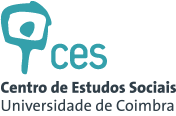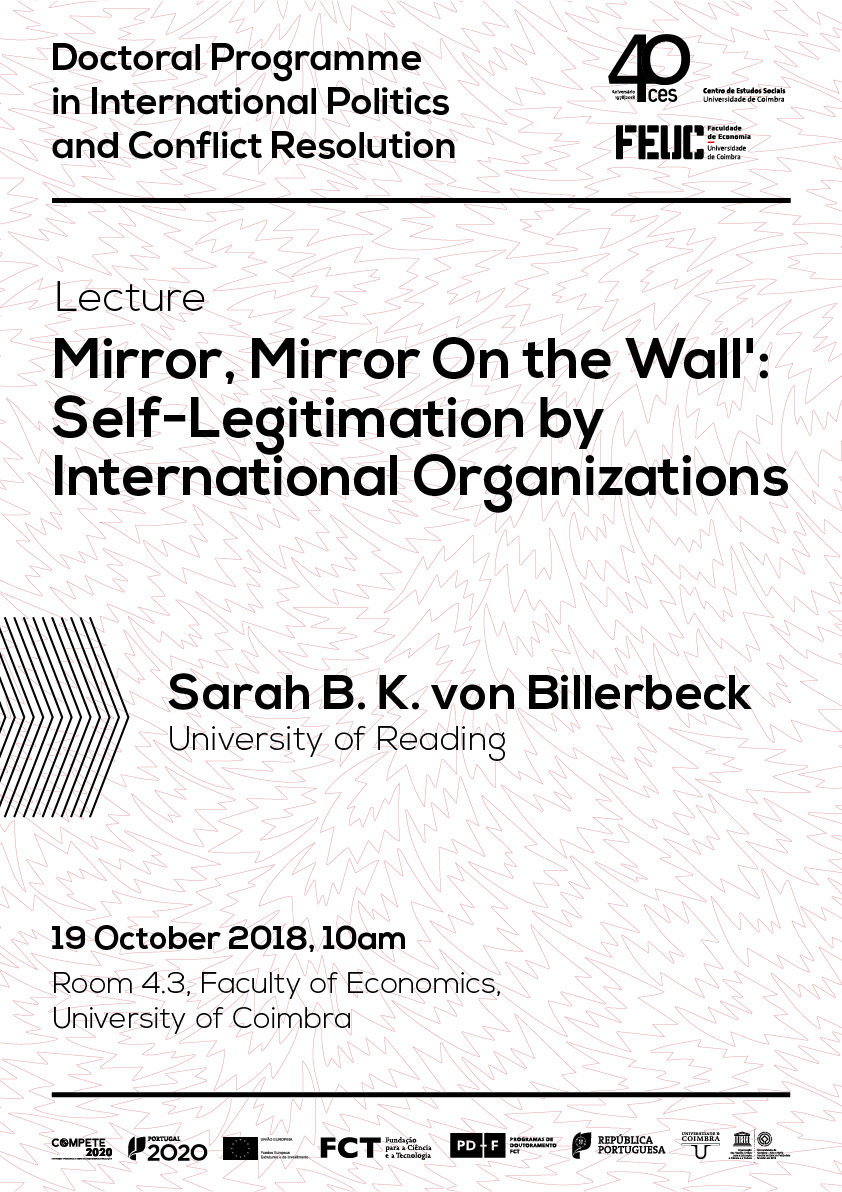Lecture
Mirror, Mirror On the Wall': Self-Legitimation by International Organizations
Sarah B. K. von Billerbeck (University of Reading)
19 de outubro de 2018, 10h00
Room 4.3, Faculty of Economics, University of Coimbra
Abstract
Most analyses of legitimacy and legitimation in International Relations focus on perceptions of one actor by another. In so doing, they fail to account for self-legitimation, where an actor undertakes practices of legitimation not for external audiences, but internally, as a way of developing and reinforcing its identity. Moreover, many understandings of legitimacy neglect the fact that identities are rarely uniform and instead are multiple and conflicting. This paper addresses these omissions by examining self-legitimation by three international organizations (IOs) with multiple institutional identities – the UN, NATO, and the World Bank. To differing degrees, these organizations are all simultaneously operational and normative actors, and simultaneously institutions dependent on member states and bodies with independent expertise and capacities. These multiple identities sometimes dictate contradictory goals and practices, forcing the organizations to violate the principles and activities considered appropriate to one of their identities, thus complicating legitimation. Based upon extensive qualitative fieldwork, this paper proposes a theory of IO self-legitimation, positing that the need for self-legitimation depends on the degree of identity cohesion and hierarchy of the organization; distinguishing between two temporal dimensions for IO self-legitimation; and identifying three categories of practices of self-legitimation, which are discursive and symbolic in nature. I further identify three broader repercussions of IO self-legitimation, and show that self-legitimation is a necessary and constitutive activity for IOs.
Short bio: Sara B. K. Von Billerbeck’s research focuses on peacekeeping and peacebuilding, post-conflict reconstruction, the United Nations, international organizations, and legitimacy, and she is co-Director of the UN and Global Order Program, established at the University of Reading in 2017 (see https://research.reading.ac.uk/ungop/). Sarah currently holds an ESRC Future Research Leaders Grant for a two-year project entitled 'Self-Legitimation by International Organizations,' in which she is conducting a comparative study of internal legitimation in the UN, NATO, and the World Bank. She is also co-Principal Investigator on a large ESRC-funded project entitled 'Enabling Authoritarianism? United Nations Peacebuilding and Authoritarian Rule' with Oisín Tansey of King's College London (start date June 2018) and Principal Investigator of a small project looking at performance management in international organizations (December 2017-July 2018). Her book on local ownership and UN peacekeeping operations was published by Oxford University Press in December 2016. She previously worked for the UN peacekeeping mission in D.R. Congo (MONUC), the UN Economic and Social Commission for Western Asia in Lebanon, and the American Refugee Committee in Guinea. She is currently Reviews Editor for International Peacekeeping, and an Associate Member of Nuffield College, University of Oxford; an Executive Committee Member-at-Large of the International Studies Association's International Organization Section; a Steering Committee Member of OxPeace, University of Oxford; and a Trustee of the Oxford Peace Research Trust.
Activity within the Doctoral Programme in International Politics and Conflict Resolution [see complete programme of lectures]


